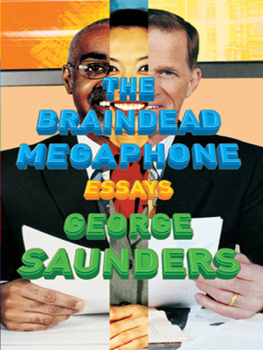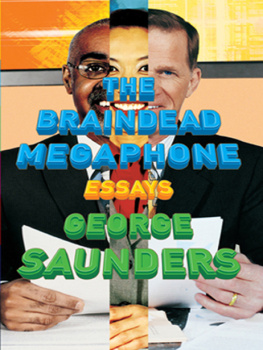RIVERHEAD BOOKS
Published by the Penguin Group
Penguin Group (USA) Inc.
375 Hudson Street, New York, New York 10014, USA
Penguin Group (Canada), 90 Eglinton Avenue East, Suite 700, Toronto, Ontario M4P 2Y3, Canada (a division of Pearson Penguin Canada Inc.)
Penguin Books Ltd., 80 Strand, London WC2R 0RL, England
Penguin Group Ireland, 25 St. Stephens Green, Dublin 2, Ireland (a division of Penguin Books Ltd.)
Penguin Group (Australia), 250 Camberwell Road, Camberwell, Victoria 3124, Australia (a division of Pearson Australia Group Pty. Ltd.)
Penguin Books India Pvt. Ltd., 11 Community Centre, Panchsheel Park, New Delhi110 017, India
Penguin Group (NZ), 67 Apollo Drive, Rosedale, North Shore 0745, Auckland, New Zealand (a division of Pearson New Zealand Ltd.)
Penguin Books (South Africa) (Pty.) Ltd., 24 Sturdee Avenue, Rosebank, Johannesburg 2196, South Africa
Penguin Books Ltd., Registered Offices: 80 Strand, London WC2R 0RL, England
The publisher has no control over and does not assume any responsibility for author or third-party websites or their content.
Copyright 2007 by George Saunders
Some of these pieces have appeared, often in substantially different form, in GQ , the Guardian , McSweeneys , the New Yorker , Slate , on Amazon.com, in the anthologies Take My Advice , Best American Travel Writing , and Best American Non-Required Reading , and as the introduction for the Modern Library paperback edition of Adventures of Huckleberry Finn .
Cover design by Rodrigo Corral; Cover art by Getty Images
All rights reserved.
No part of this book may be reproduced, scanned, or distributed in any printed or electronic form without permission. Please do not participate in or encourage piracy of copyrighted materials in violation of the authors rights. Purchase only authorized editions.
RIVERHEAD is a registered trademark of Penguin Group (USA) Inc.
The RIVERHEAD logo is a trademark of Penguin Group (USA) Inc.
Saunders, George, 1958The braindead megaphone / George Saunders.1st Riverhead trade pbk. ed.
p. cm.
ISBN: 978-1-1012-1747-4
I. Title.
PS3569.A7897B73 2007
813'.54dc22
2007006410
To my parents, on the occasion of their
fiftieth wedding anniversary, with gratitude
for their beautiful example.
CONTENTS

THE BRAINDEAD MEGAPHONE
I find myself thinking of a guy standing in a field in the year 1200 doing whatever it is people in 1200 did while standing in fields. Im thinking about his mind, wondering whats in it. Whats he talking about in that tape-loop in his head? Whos he arguing with? From whom is he defending himself, to whom is he rationalizing his actions?
Im wondering, in other words, if his mental experience of life is different in any essential way from mine.
What I have in common with this guy, I suspect, is that a lot of our mental dialogue is with people we know: our parents, wives, kids, neighbors.
Where I suspect we part ways is in the number and nature of the conversations we have with people weve never met.
He probably does some talking to his gods, his ancestors, mythological beings, historical figures. So do I. But there is a category of people I mentally converse with that he does not: people from far away, whove arrived in the mind, with various agendas, via high-tech sources.
I suspect that you also have these people in your mind; in fact, as you read this (sorry, sorry) I am become one of them.
Is this difference between us and Mr. or Ms. 1200 a good thing or a bad thing? Im not sure. For now, lets just acknowledge it as a difference ; a change in what human beings are asking their minds to do on a daily basis.
Imagine a party. The guests, from all walks of life, are not negligible. Theyve been around: theyve lived, suffered, own businesses, have real areas of expertise. Theyre talking about things that interest them, giving and taking subtle correction. Certain submerged concerns are coming to the surface andsurprise, pleasant surprisebeing confirmed and seconded and assuaged by other people whove been feeling the same way.
Then a guy walks in with a megaphone. Hes not the smartest person at the party, or the most experienced, or the most articulate.
But hes got that megaphone.
Say he starts talking about how much he loves early mornings in spring. What happens? Well, people turn to listen. It would be hard not to. Its only polite. And soon, in their small groups, the guests may find themselves talking about early spring mornings. Or, more correctly, about the validity of Megaphone Guys ideas about early spring mornings. Some are agreeing with him, some disagreeingbut because hes so loud, their conversations will begin to react to what hes saying. As he changes topics, so do they. If he continually uses the phrase at the end of the day, they start using it too. If he weaves into his arguments the assumption that the west side of the room is preferable to the east, a slow westward drift will begin.
These responses are predicated not on his intelligence, his unique experience of the world, his powers of contemplation, or his ability with language, but on the volume and omnipresence of his narrating voice.
His main characteristic is his dominance. He crowds the other voices out. His rhetoric becomes the central rhetoric because of its unavoidability.
In time, Megaphone Guy will ruin the party. The guests will stop believing in their value as guests, and come to see their main role as reactors-to-the-Guy. Theyll stop doing what guests are supposed to do: keep the conversation going per their own interests and concerns. Theyll become passive, stop believing in the validity of their own impressions. They may not even notice theyve started speaking in his diction, that their thoughts are being limned by his. Whats important to him will come to seem important to them.
Weve said Megaphone Guy isnt the smartest, or most articulate, or most experienced person at the partybut what if the situation is even worse than this?
Lets say he hasnt carefully considered the things hes saying. Hes basically just blurting things out. And even with the megaphone, he has to shout a little to be heard, which limits the complexity of what he can say. Because he feels he has to be entertaining, he jumps from topic to topic, favoring the conceptual-general (Were eating more cheese cubesand loving it!), the anxiety-or controversy-provoking (Wine running out due to shadowy conspiracy?), the gossipy (Quickie rumored in south bathroom!), and the trivial (Which quadrant of the party room do YOU prefer?).
We consider speech to be the result of thought (we have a thought, then select a sentence with which to express it), but thought also results from speech (as we grope, in words, toward meaning, we discover what we think). This yammering guy has, by forcibly putting his restricted language into the heads of the guests, affected the quality and coloration of the thoughts going on in there.
He has, in effect, put an intelligence-ceiling on the party.
A man sits in a room. Someone begins shouting through his window, informing him of conditions in the house next door. Our mans mind inflects: that is, he begins imagining that house. What are the factors that might affect the quality of his imagining? That is, what factors affect his ability to imagine the next-door house as it actually is ?













